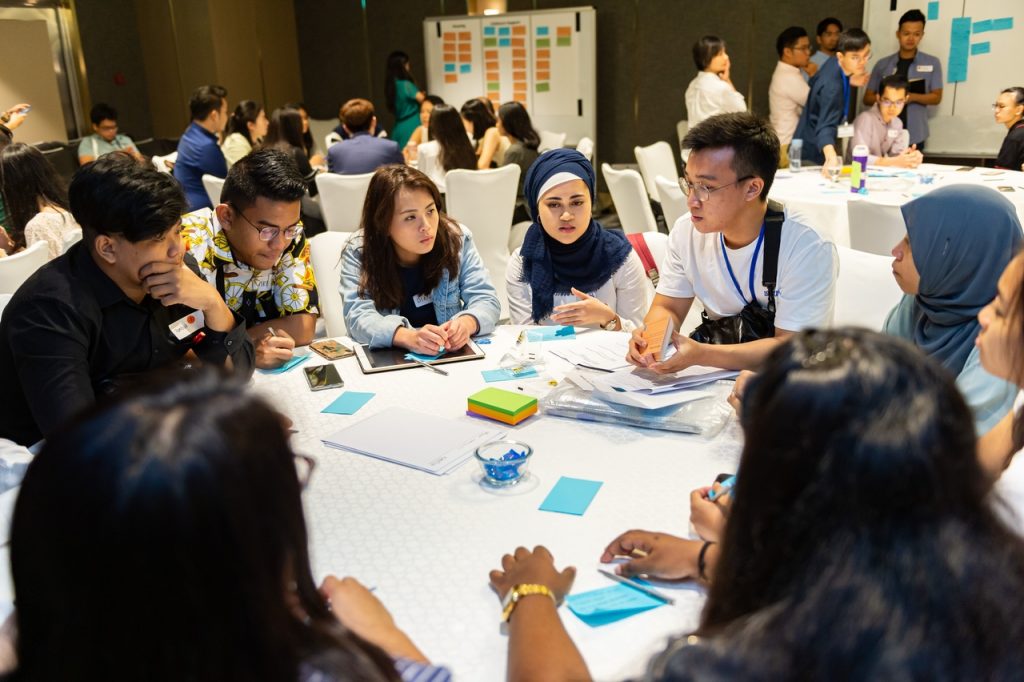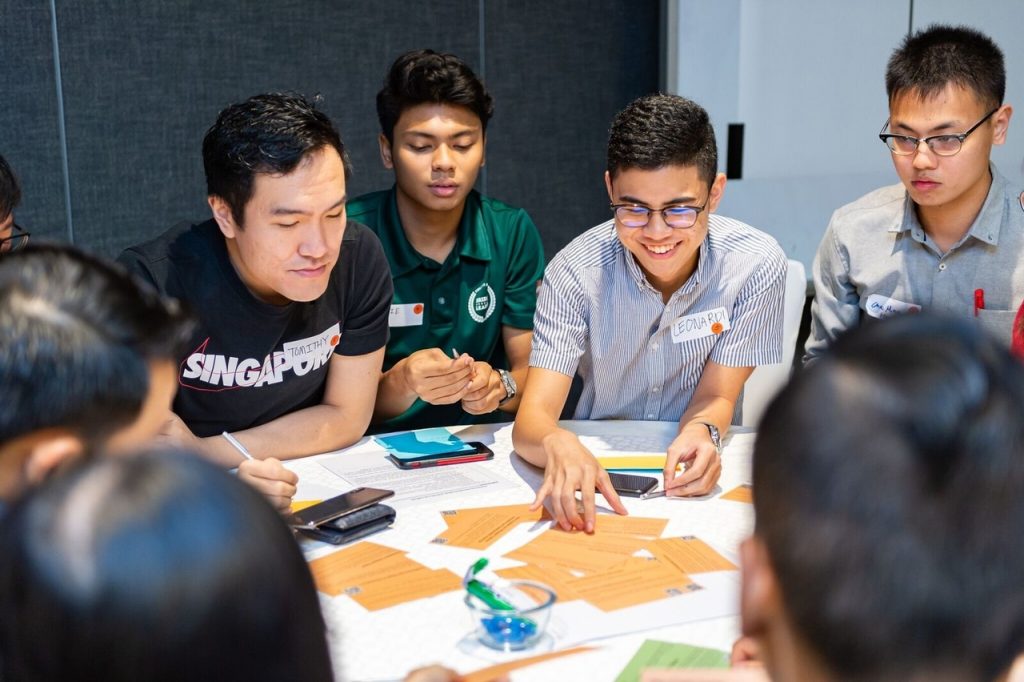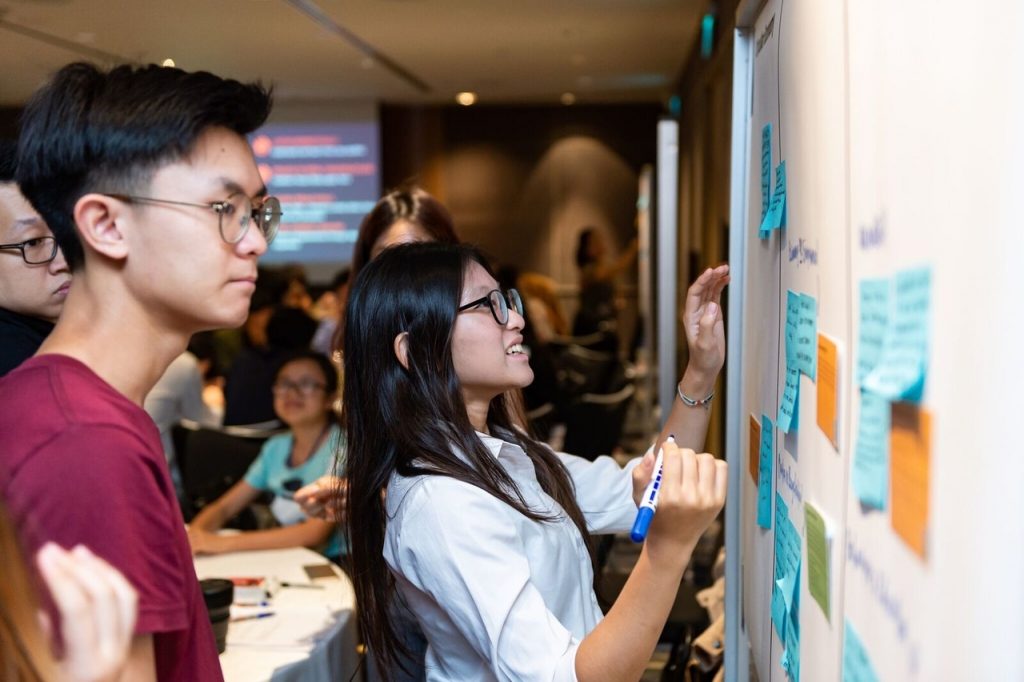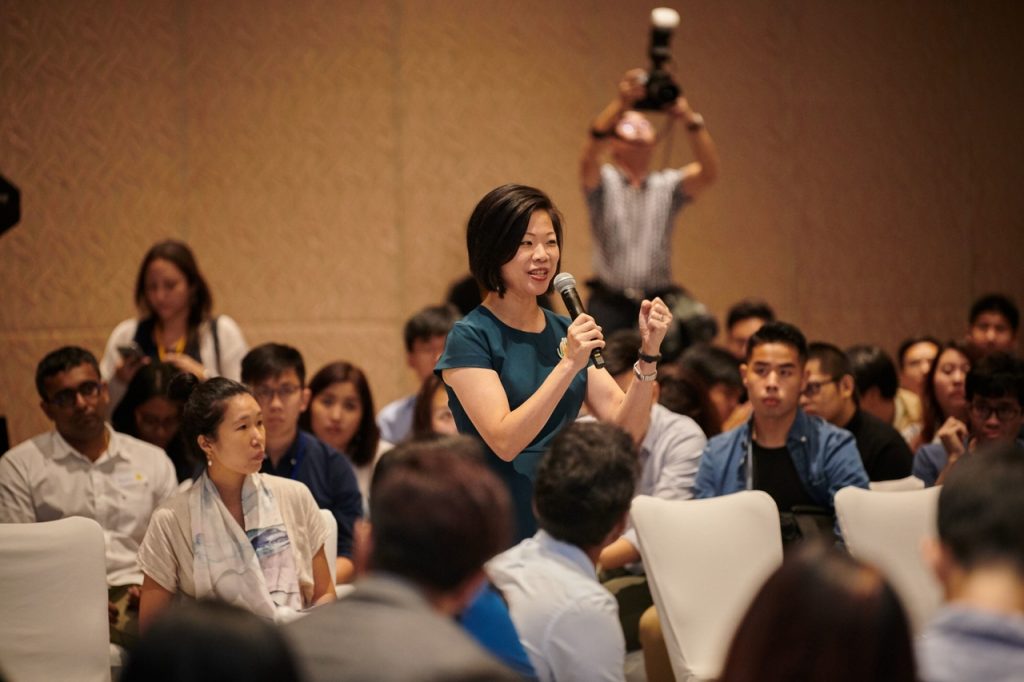All images courtesy of the National Youth Council.
To be alive right now is to feel like nothing makes sense any more.
The coronavirus outbreak has sparked a global health crisis. Half a billion animals just burned to death in Australia. Voters all around the world are electing bigots and liars into political office. Social media, once feted for ‘creating connections’, has instead left us lonely and divided.
Closer to home, life feels more precarious than it ever did.
You can graduate with a good degree, and only manage to land a contract admin assistant role after six months of looking for work. You might want kids, but your pay won’t stretch to cover childcare and tuition on top of supporting your parents. You have no idea if your job will still be around in 10 years, if the oceans will still support life, or if the financial system will withstand another crash.
I don’t think I’m alone in saying that we live in an age of anxiety. We’re unsettled by how quickly and drastically the world is changing, and helpless over how to respond.
This would be tough under any circumstances, but it is especially terrifying if you are young. All of the above are usually seen as “adult” concerns, not things you worry about at 18.
How do you plan for your future when that future might be disrupted beyond recognition? How do you go forward when the old ways no longer apply, and no one’s figured out what the new ones are?

You could, of course, let the fear paralyse you into nihilism—or you could channel it into daring to aim higher.
This was the mood at the Pre-Budget Consultation Event, organised by the National Youth Council (NYC) on 18th January. Around 260 young people from various walks of life showed up on a Saturday afternoon, of their own volition, to spend 5 hours meeting with political office-holders and giving their input on key issues ahead of the Budget.
After opening remarks by Minister Grace Fu and Deputy Prime Minister Heng Swee Keat, participants split up into four groups, each focusing on a different topic: Environment and Sustainable Development, Jobs and the Future of Work, Support for Families, and Support for Ageing Population. Each group was asked to share their views on their topic, and then identify areas they could act on.

Being young, you might expect the participants’ concerns to be largely personal, or limited by their life experiences. To some extent, this was true. In the panel I sat in on, Jobs and the Future of Work, people spoke about tertiary education and entering the workforce. Some worried about whether their degrees would lead to ‘good’ jobs, the viability of freelancing, or if our education system adequately prepares us for work.
However, many participants raised issues which were not only broader in scope, but concerned life 10, 20, or 50 years down the road.
For example, you mightn’t expect 19-year-olds to be thinking about ‘upskilling’ and ‘reskilling’, but this was one of the issues which came up most. Even though they were still in school or had just started work, many participants feared they lacked the necessary skills to make a career switch, particularly if their jobs became obsolete.
Others talked about the importance of work-life balance, looking abroad for opportunities, and creating a social system which not only values failure, but supports people in taking risks. These are all bigger questions than can be addressed in a single Budget, but they were weighing on participants’ minds all the same.

It was a similar situation in the Environment and Sustainable Development room, where participants identified with each others’ struggles with climate anxiety. Many shared about grappling with powerlessness (the belief that individual choices won’t make any difference), and guilt (being reluctant to sacrifice convenience in the name of going green).
But beyond this, there was a shared sense of frustration and impatience driving the discussion. Although the climate crisis is often framed as a ‘battle for the future’, participants agreed that in practice, it’s still being treated like a minor inconvenience rather than an existential threat.
Accordingly, participants weren’t satisfied with comforting murmurs about low-hanging fruit, like choosing metal over plastic straws. They pushed the discussion into challenging, sometimes unfamiliar territory, by exploring the most effective ways to drive long-term change.
Some participants asked how corporations could be made to adopt greener business practices. Others felt that the government should get the ball rolling through more drastic measures like banning plastic bags.
Either way, the sentiment was clear: young people might be stressed and scared, but we’re not content to simply roll over and let life happen. If we’ve been pushed to excel all our lives, then we might as well direct our striving towards something good.

As participants gathered for a round-up of the day’s proceedings, the room buzzed with a collective sense of urgency. After listening to what had been shared, especially from the Environment and Sustainable Development Panel, many felt that simply waiting for change to happen would not be enough.
But more than this, there was a sense of hope that the Budget would reflect the scope of participants’ ambitions, incorporate what had been shared, and pave the way for long-term cultural and policy change.
Exceptionalism is, and always has been, part of the narrative of being Singaporean. We are frequently reminded of how fortunate we are to live in one of the world’s safest countries, with a highly educated population and healthcare and housing systems that are the envy of countries around the world. As children, we are frequently pushed to study harder, dream bigger, and aim higher, creating a restlessness that often follows us into adulthood.
Of course, this narrative is far from perfect (as every stressed-out, exam-weary child can attest to). Similarly, the challenge of policymaking—and the Budget—is finding something that works for all Singaporeans, and addresses the country’s most pressing needs while creating space for long-term growth.
But it also shows that fear, when harnessed strategically, can be a productive force.
The other, equally potent side of anxiety is aspiration. If young people can imagine the worst-case scenarios and prepare ourselves for them, then it also follows that we can imagine something better. The 260 or so attendees that Saturday might have been anxious and uncertain about the future, but they channelled this into the first step towards making any difference: showing up.
And if Singapore consistently aims to be a world leader in everything, from being the best country to raise children in to having the world’s best airport, then why not leading on sustainability and family-friendly employment policies, too?
Youthful angst is frequently dismissed as naivete, or the inability to know any better, but this is both condescending and narrow-minded. If we all applied the same boldness to creating the sort of world we’d like to live in, as we do for our careers or our personal lives, then we might just—goodness knows—see results.
Calling all youths aged 18 to 35: Want to shape the world you’d want to live in? Be part of the SG Youth Action plan and learn how you can make a change here.
This artice was sponsored by the National Youth Council.
In the meantime, tell us what you thought of this piece at community@ricemedia.co .






